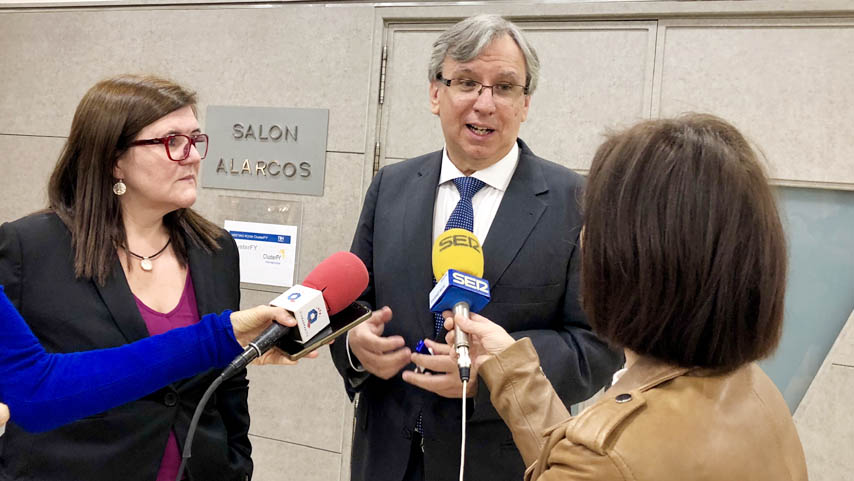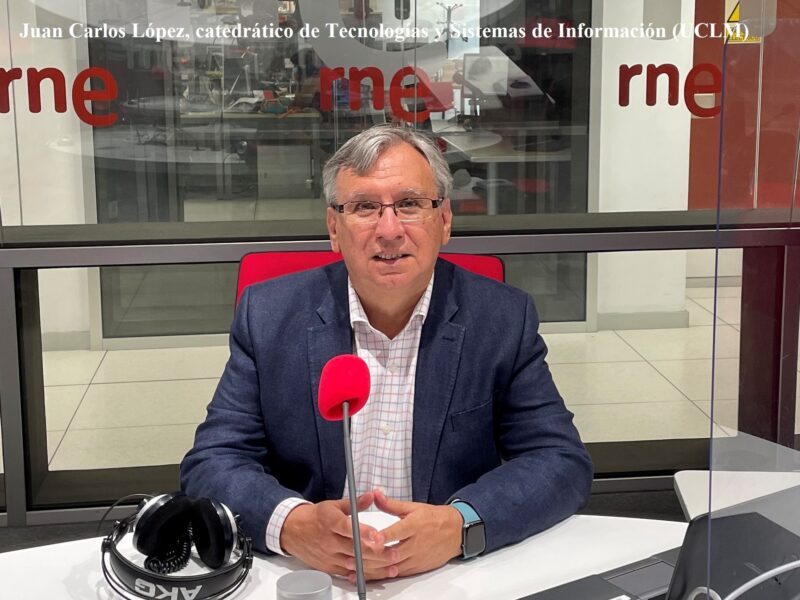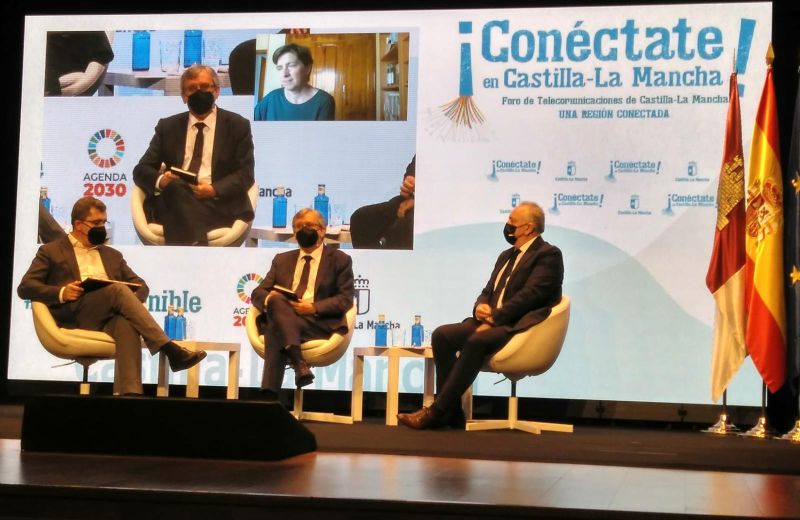Juan Carlos López coordinates the European project ClusterFY
The ClusterFY project, for the development of innovation clusters, is coordinated in Castilla-La Mancha by ESI professor Juan Carlos López
The University of Castilla-La Mancha (UCLM) is promoting the development of innovation clusters in the autonomous community through its participation in the European project ClusterFY, whose members met today in Ciudad Real in a meeting inaugurated by the general director of Research, Development and Innovation of the Ministry of Science, Teresa Risk Alcaide.
Promote in Castilla-La Mancha the development of clusters, that is, of groups of companies in the same sector and located in the same territory, with the participation of research centers and the different administrations, with the purpose of articulating innovative initiatives, strategic interest and with international potential. This is the objective pursued by the University of Castilla-La Mancha (UCLM) with its participation in the project ClusterFY, developed within the scope of the Interreg Europe programme, and which includes seven other European regional agents. The partners of the initiative met this morning in Ciudad Real to participate in a seminar opened by the General Director of Research, Development and Innovation of the Ministry of Science, Innovation and Universities, Teresa Riesgo Alcaide. To questions from the media, Risk Alcaide has stated that the development of innovation policies is one of the priorities of the Government of Spain as a whole and of the Ministry of Science in particular, emphasizing the role of universities and research centers in these actions. In explicit reference to the University of Castilla-La Mancha, she has stated that this institution "plays a very important role" in terms of research, development and innovation. "The UCLM has proven to be a powerful university, with very high research and innovation capabilities, and this with the added difficulties of its location in such a large and dispersed region", stressed the general director, who explained that she knows the University of Castilla-La Mancha because she had the opportunity to collaborate with its researchers and professors during her time as Professor of Electronic Technology at the Polytechnic University of Madrid.
For his part, the coordinator of the project in Castilla-La Mancha, the UCLM professor Juan Carlos López, has justified the convenience of initiatives such as ClusterFY in the excellent results that the more than eight hundred clusters currently operating in Europe are obtaining, and in the need for potential partners to know not only how to create them, but also how to manage their activity. According to Professor López, “the clusters have a territorial meaning and the participants in the ClusterFY project are fundamentally agencies or regional governments, to maintain that concept of territory where the companies of the region, the universities of the region and the regional governments are located. . The idea –he adds- is if all the actors go together, it will be better for us than going separately. This is what we are trying to do in Castilla-La Mancha, where the cluster concept is especially useful to promote the challenge of innovation in small and medium-sized companies, which are the majority in our territory”.
Together with the UCLM, on behalf of Castilla-La Mancha, the ClusterFY project is made up of the Lithuanian Agency for Science, Innovation and Technology, the alliance of the provinces of the North of the Netherlands (Holland), the Hudiksvall region (Sweden) , the Polish Agency for Business Development, the South-Muntenia Regional Development Agency (Romania), the Slovak Agency for Innovation and Energy (Slovenia) and the Hellas Research and Technology Center (Greece).
The representatives of all these entities are in Castilla-La Mancha for three days completing a program that began last Monday in Toledo with a working session on the progress of the project and the results of the thematic groups. Yesterday, Tuesday, the expedition traveled to Puertollano and Valdepeñas (Ciudad Real) to visit the National Hydrogen Center, the Research and Development Biorefinery (CLAMBER), the Concentration Photovoltaic Systems Institute (ISFOC), the technology company TECNOBIT and the Castilla-La Mancha Metal Technological Center (ITECAM).










